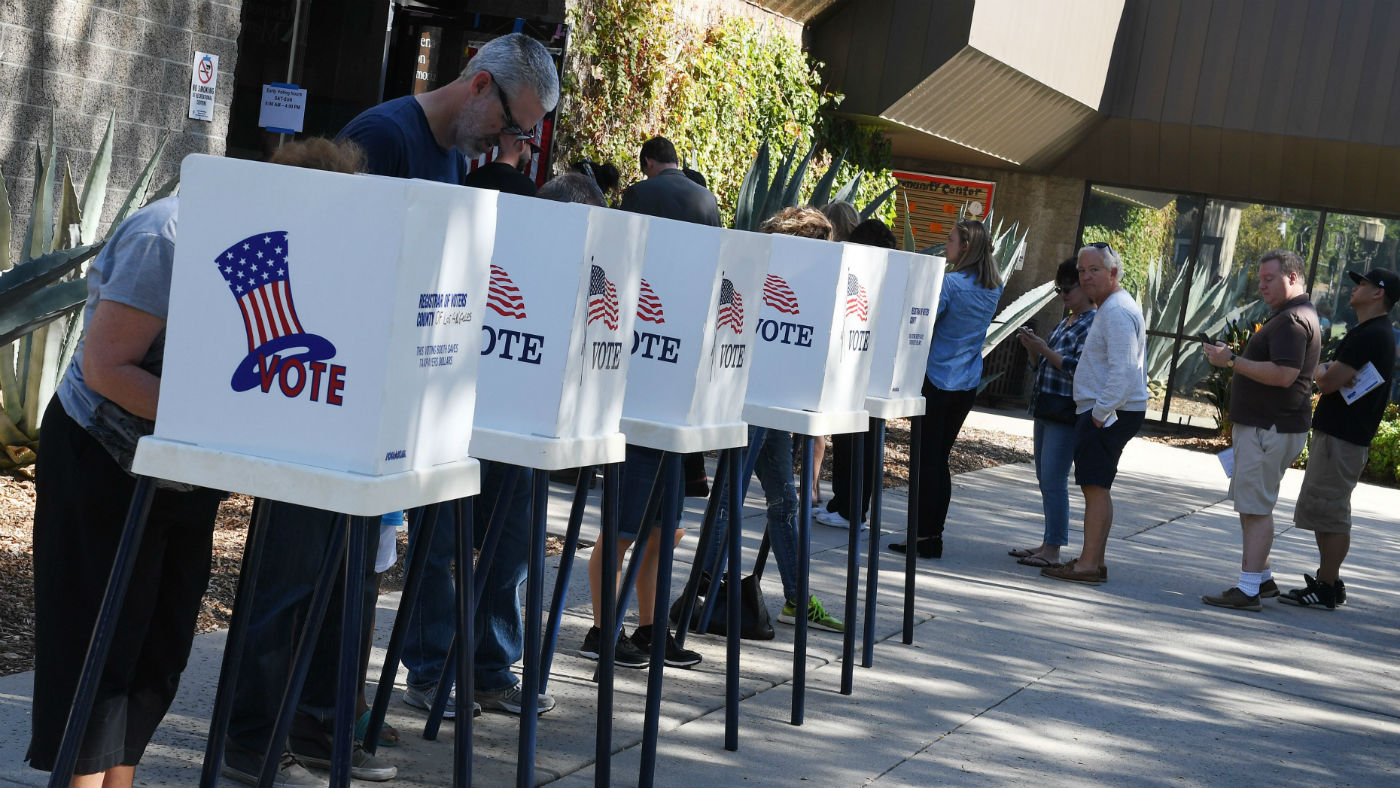The world's five most unusual referendums
Not all countries allow for direct democracy and this might be why

A free daily email with the biggest news stories of the day – and the best features from TheWeek.com
You are now subscribed
Your newsletter sign-up was successful
As the UK's Brexit saga continues to drag on and on, there may be some comfort in knowing other countries have fallen for the allure of an unorthodox national plebescite.
Here are five of the more unusual referendums that have taken place across the globe:
Lawyers to represent animals in court: Switzerland, 2010
The Week
Escape your echo chamber. Get the facts behind the news, plus analysis from multiple perspectives.

Sign up for The Week's Free Newsletters
From our morning news briefing to a weekly Good News Newsletter, get the best of The Week delivered directly to your inbox.
From our morning news briefing to a weekly Good News Newsletter, get the best of The Week delivered directly to your inbox.
Switzerland already had some of the strictest animal welfare laws in the world when the public were asked to decide whether abused animals needed legal representation. Animal rights groups argued that creatures great and small having their own lawyers would cut the number of abuses going unpunished. Lawyer and major proponent of the move Antoine Goetschel proposed a nationwide system of state-funded animal defence lawyers - but the Swiss said non, no and nein, with 71% voting against.
Extraterrestrial affairs commission: Denver, Colorado, 2010
This initiative called for greater transparency and better cooperation from the government on UFO sightings. Supporters said the commission would “help ensure the health, safety, and cultural awareness of Denver residents” in potential encounters with other-worldly beings. However, many residents viewed the vote as meaningless and simply a way for conspiracy theorists to spread their ideas using the city website. The people of Denver overwhelmingly rejected it with an 82% vote.
National song selection: Australia, 1977
A free daily email with the biggest news stories of the day – and the best features from TheWeek.com
During Australia’s 1977 referendum on a number of serious topics, the government of the time added an optional question to the ballot paper: which song best represents the national identity? “God Save the Queen” had been the national anthem since 1788, but the paen to the British monarchy had fallen out of favour. Australians were given the options “God Save the Queen,” “Advance Australia Fair,” “Song of Australia,” and “Waltzing Matilda.” The latter was the only option written by an Australian, but 43% of people felt most connected to “Advance Australia Fair”, and it’s been the anthem ever since.
Dummy cop partner: San Francisco, California, 1993
Ventriloquist dummy Officer Brendan O’Smarty was born after his human partner, San Francisco police officer Bob Geary, joined a community policing programme that encouraged officers to use “creative and ingenious methods” connect with citizens. The two would entertain children while on patrol, and in 1993 a referendum vote that made O'Smarty a permanent fixture of the force until his retirement in 2000.
Which way to roll: Saskatchewan, Canada, 1997
Trying to think of a fun and low-stakes issue on which to test out new voting machines, Saskatchewan posed an age-old question: should toilet paper hang over the top or under the roll? The vote got to the roots of what the town wanted to see in their public toilets and the answer was clear: 80% said over. That’s that settled, then.
-
 Sepsis ‘breakthrough’: the world’s first targeted treatment?
Sepsis ‘breakthrough’: the world’s first targeted treatment?The Explainer New drug could reverse effects of sepsis, rather than trying to treat infection with antibiotics
-
 James Van Der Beek obituary: fresh-faced Dawson’s Creek star
James Van Der Beek obituary: fresh-faced Dawson’s Creek starIn The Spotlight Van Der Beek fronted one of the most successful teen dramas of the 90s – but his Dawson fame proved a double-edged sword
-
 Is Andrew’s arrest the end for the monarchy?
Is Andrew’s arrest the end for the monarchy?Today's Big Question The King has distanced the Royal Family from his disgraced brother but a ‘fit of revolutionary disgust’ could still wipe them out
-
 Switzerland could vote to cap its population
Switzerland could vote to cap its populationUnder the Radar Swiss People’s Party proposes referendum on radical anti-immigration measure to limit residents to 10 million
-
 Greenland’s capital becomes ground zero for the country’s diplomatic straits
Greenland’s capital becomes ground zero for the country’s diplomatic straitsIN THE SPOTLIGHT A flurry of new consular activity in Nuuk shows how important Greenland has become to Europeans’ anxiety about American imperialism
-
 Epstein files topple law CEO, roil UK government
Epstein files topple law CEO, roil UK governmentSpeed Read Peter Mandelson, Britain’s former ambassador to the US, is caught up in the scandal
-
 Iran and US prepare to meet after skirmishes
Iran and US prepare to meet after skirmishesSpeed Read The incident comes amid heightened tensions in the Middle East
-
 Israel retrieves final hostage’s body from Gaza
Israel retrieves final hostage’s body from GazaSpeed Read The 24-year-old police officer was killed during the initial Hamas attack
-
 China’s Xi targets top general in growing purge
China’s Xi targets top general in growing purgeSpeed Read Zhang Youxia is being investigated over ‘grave violations’ of the law
-
 Panama and Canada are negotiating over a crucial copper mine
Panama and Canada are negotiating over a crucial copper mineIn the Spotlight Panama is set to make a final decision on the mine this summer
-
 Why Greenland’s natural resources are nearly impossible to mine
Why Greenland’s natural resources are nearly impossible to mineThe Explainer The country’s natural landscape makes the task extremely difficult